Tanzania: Things to Know Before You Go
The Ovens family set off from the east coast of Australia in 2020, cruising westward through South East Asia before crossing the Indian Ocean to Tanzania on their catamaran SV Excelsior. In the second report on their time in Tanzania for Noonsite, mum Sarah explains a few of the things – which they found out from experience – that they advise cruisers to be aware of before arriving in the country.
Published 5 months ago
Tanzania: Things to Know Before You Go
No Agent!
A plus side to cruising in Tanzania is that you do not require an agent or sponsor!
Language
The common language spoken in Tanzania is Swahili and like all countries, we recommend that you learn the basics; hello, how are you, please, thank you, goodbye – at the very least. Most Tanzanians will happily teach you Swahili if you ask and they are appreciative of any effort you go to, to use their language.
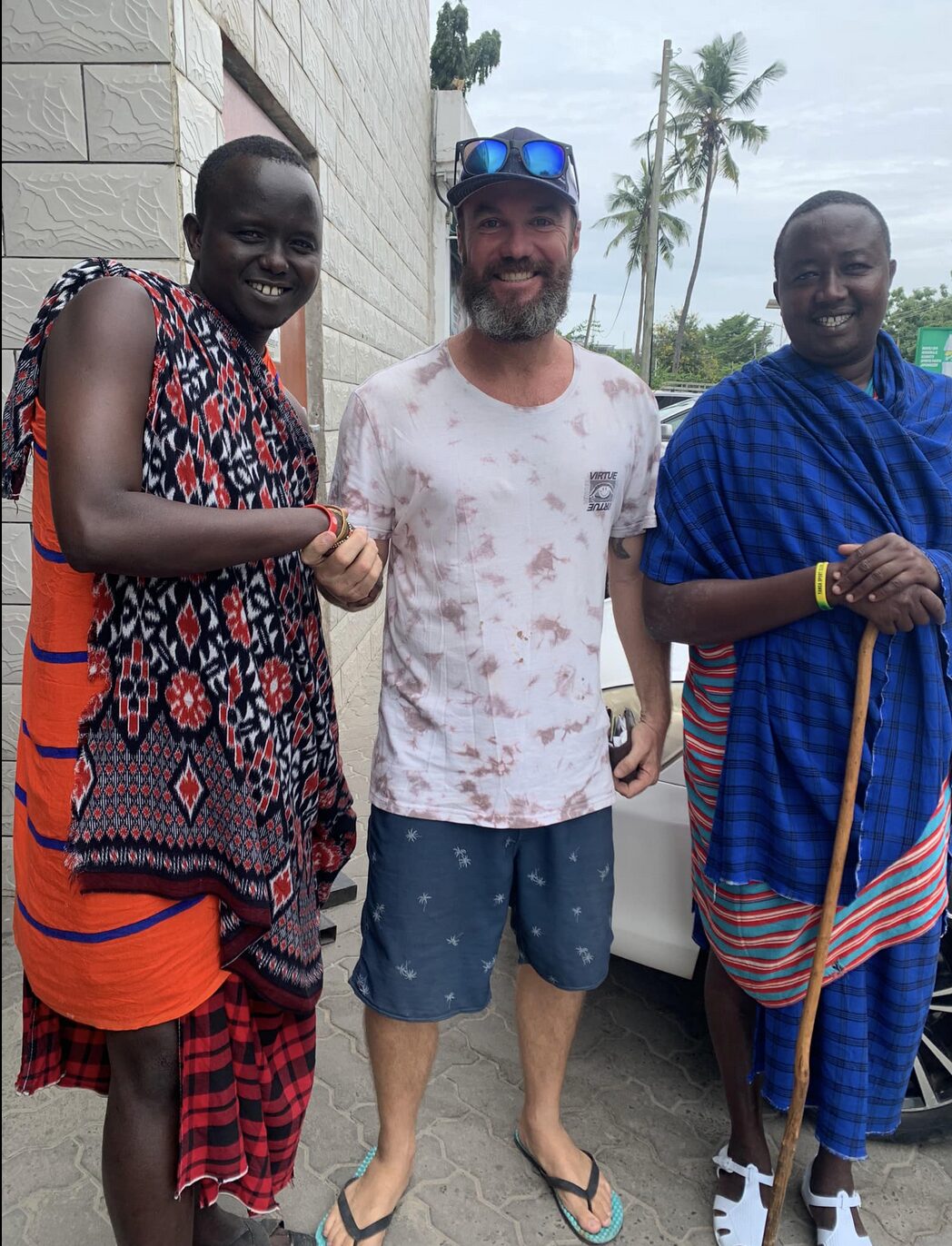

US Dollars – a Must!
USD cash is the most accepted form of payment and in some cases the only accepted form of payment for Visas and other official charges. Expect to pay $50 USD cash per Visa (3 months). However, American citizens are required to apply for a Multiple Entry Visa, for which they are charged a fee of $100 USD.
I can’t stress this enough, because we did not have USD cash and were charged the equivalent of $75 USD per visa, with an additional facilitation fee from the immigration officer. Even since the mandate, officials will only accept USD cash. It is also important to note that both Kenya and Tanzania won’t accept US dollars that are dated pre-2017.
If you pay in Tanzanian Shillings*, you will expect to pay at least $75 USD per Visa (with their conversion rate) and they may even ask you for a “facilitation fee” for helping you.
*As of July 1st, 2024, the Tanzanian directive mandates that all transactions in the country must be advertised and conducted in Tanzanian shillings. However, since the mandate all Government bodies still continue to only accept payment in USD cash.
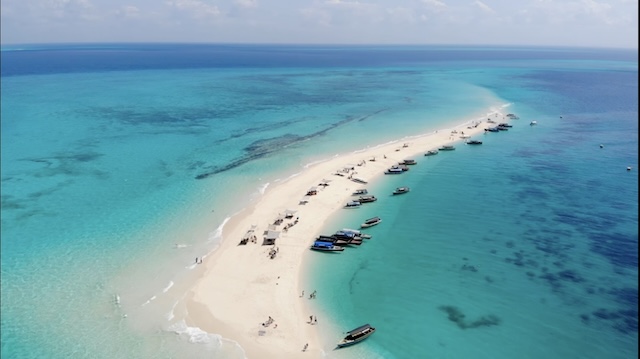

VAT
VAT fees are usually 18%. Most prices are given without VAT, so be careful when budgeting. Always expect prices to be more than they really are.
Transire
Transire documents must be obtained from the port authority/customs office for each place you visit and you will need to obtain an on-going Transire for your next intended port, which then needs to be handed in to customs upon arrival. These documents allow you to travel within each region and without one, fines may apply. Always make a copy or take a screen shot, just in case.
Provisioning
Dar es Salaam is the best place we visited in Tanzania when it comes to provisioning, especially for things like meat / fuel / gas (propane).
If you intend on checking into Dar es Salaam to then make your way north, I recommend stocking up on the hard-to-get supplies before you leave.
If you are coming from or heading to Kilifi, Kenya, the provisioning there is good.
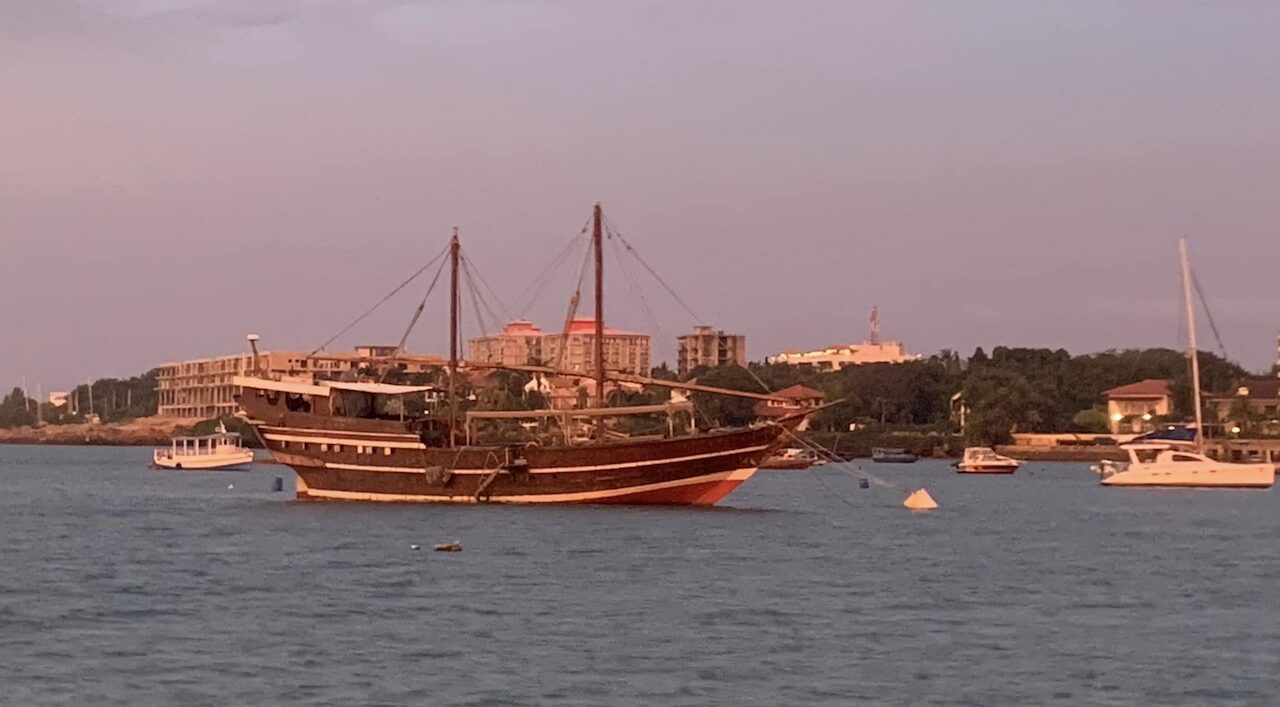

Keep your dinghy slung at night
We recommend that you always sling your dinghy at night to prevent opportunistic thieves from stealing it. It’s a good practice in any country really, particularly if you have a 2-stroke engine, as they definitely seem to be more sought after than 4-strokes.
A boat anchored in Tanga had their outboard stolen whilst they were away from their vessel (incident occurred July 2024).
Traveling at night
We would not recommend traveling along the coast at night unless absolutely necessary. There are many squid boats with bright lights which can mess with your night vision and make it difficult to judge where their vessels are, but there are also many fishermen and nets.
We hit a ghost net in the shipping channel near Dar es Salaam at night and that was not a fun experience as we were under full canvas and going 8 knots at the time.
There are also many large dhows or vessels that do not have navigational lights or AIS and we had a near-miss with a large dhow that was sailing in the dark near Tanga. Fortunately our radar picked up a heat signature or we would have collided.
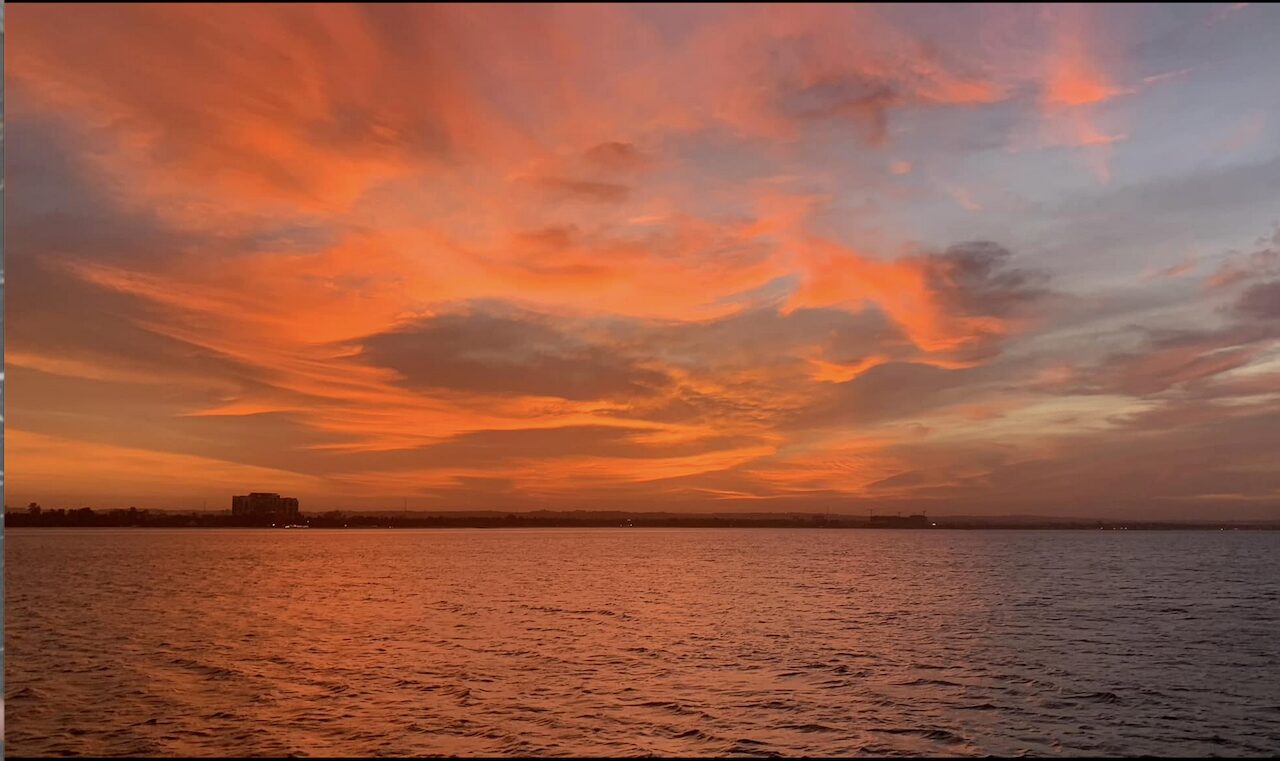

Cultural Appropriation – Dress Respectfully
The Tanzanian population has a high percentage of Muslims, especially in the Zanzibar/Pemba and coastal regions, so it is important to dress respectfully, particularly if you are a woman. My rule of thumb is to keep knees and shoulders covered and avoid clingy or revealing clothing styles. You will be shown more respect if you dress appropriately. Men are also encouraged to dress appropriately, especially when visiting Port Authorities. We recommend smart casual attire of long trousers, collared shirt and closed in shoes. Best not to turn up in flip flops and boardshorts (because you may be made to wait longer). You will be given more respect by the authorities if you dress appropriately.
In Islamic culture the left hand is the cleaning hand and is therefore considered dirty. Try to avoid waving, shaking hands, touching, or pointing with your left hand if you can help it.
Lunchtime is usually prayer time, so you will find many businesses closed around this time of day.
Mosques will broadcast the call to prayer over loudspeakers throughout the day starting from 5am, so be aware of this.
If you intend to film or photograph any people (regardless of their culture), we recommend that you always ask permission first. We have found that the Tanzanians either love or hate being filmed or photographed, so be respectful if your request is declined.
Drone Filming
There are some pretty strict rules and regulations when it comes to flying drones in Tanzania. Here’s some interesting reading: Drone Filming in Tanzania.
Local Laws you may want to be aware of in Tanzania
- Don’t use or carry illegal drugs. Penalties for drug offences are severe and include long prison sentences. It’s also illegal to possess pornographic material.
- Plastic bags are banned in Tanzania.
- Same-sex relations are illegal and punishable by up to 30 years in jail. Authorities have targeted LGBTQIA+ rights activists.
- It’s illegal to photograph military zones, weapons or personnel.
Health and Safety
We recommend taking a look at the up-to-date Health and Safety warnings issued by your country of origin for travel in Tanzania.
Australia for example recommend the following cautions: Tanzania Travel Advice & Safety | Smartraveller
Sarah Ovens
SV Sailing Excelsior
…………………………………
Other Noonsite reports from SV Excelsior:
- Tanzania: Busy Ports and Stunning Anchorages
- Tanzania: A Cruising Family’s Guide to Marine Parks and Reserves
- Cruising Sri Lanka: What we Wish We’d Known Beforehand
…………………………………
About the Authors:
The Ovens Crew are an Australian Live-aboard family who began cruising on their sailing catamaran, Excelsior, in 2020. Starting out on the east coast of Australia, they have since travelled extensively throughout Indonesia (for 12 months) and then onward to Thailand, Malaysia, Sri Lanka, Maldives and more recently they have crossed the Indian Ocean to explore the African Continent and its cruising grounds. Find out more about the Ovens family via their:
- You Tube Channel: https://www.youtube.com/@sailingexcelsior
- Instagram: instagram.com/theovenscrew
- Facebook: facebook.com/Sailing-Excelsior-108521981424036
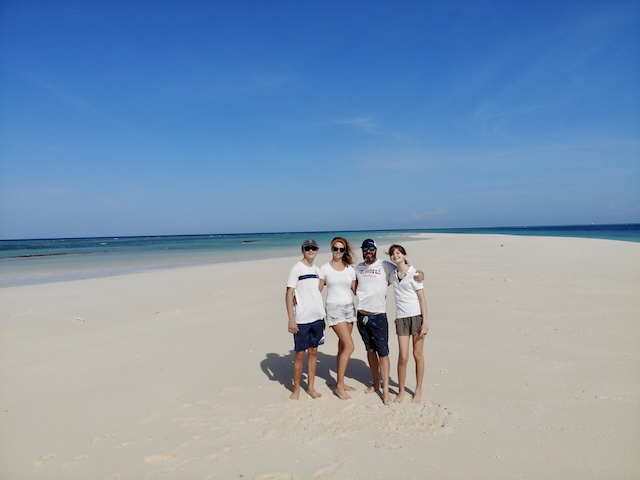

…………………………………
The opinions expressed in this article are the author’s own and do not reflect the view of Noonsite.com or World Cruising.
…………………………………
Find out all news, reports, links and comments posted on Noonsite, plus cruising information from around the world, by subscribing to our FREE monthly newsletter. Go to https://www.noonsite.com/newsletter/.
Related to following destinations: Dar es Salaam, Kilindoni (Mafia Island), Lindi, Mtwara, Pangani, Pemba Island (Zanzibar Mkoani), Tanga, Tanzania, Zanzibar
Related to the following Cruising Resources: Circumnavigation, Circumnavigation, Indian Ocean, Routing


